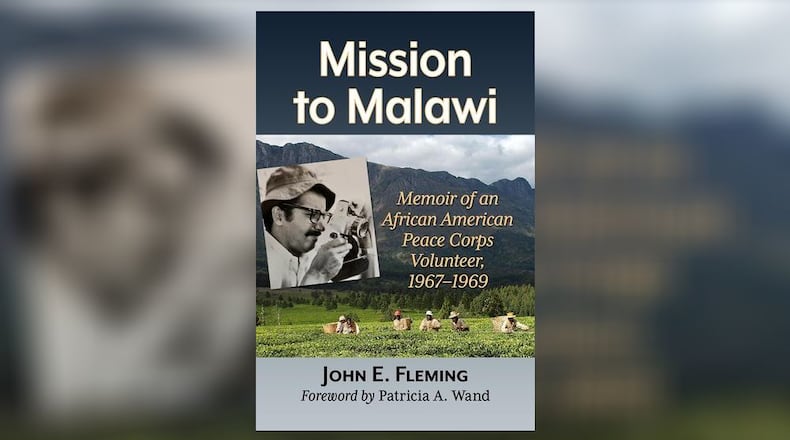He was the only African American volunteer in a cohort that spent two years there. Living conditions were primitive by our standards. Fleming and another volunteer moved into a house in the countryside and traveled mostly by motorcycle.
Roads were poor, volunteers were cautioned: you face a 100% likelihood of getting into motorcycle accidents. Of course at that age many of us considered ourselves to be immortal and he questioned that prediction, surely he could navigate treacherous roads, and sudden instant obstacles, without harm, or so he believed.
He goes on to detail hair-raising motorcycle accidents he experienced. Meanwhile he was working away creating audio-visual aids for local farmers while settling into the culture of that mysterious land. He fell in love with the food and describes many meals he savored during this African sojourn.
In an interview the author explained he wrote the memoir then realized he had access to much more specific information to help him fill in details of that distant time. There was a cache of letters he exchanged with Barbara, his future wife. He also kept a journal during his first year there which proved valuable in establishing the chronology of events.
He journeyed to other places. Some volunteers made a road trip to a game preserve. On their way there they stopped at the home of a missionary who was residing in post-colonial luxury, in a nice house with numerous servants. They asked if they could spend the night? The missionary reluctantly agreed to allow them to sleep in the yard.
The following morning they inquired about using the bathroom. They were told; do your business in the yard. Fleming was appalled. This inhospitable reception tainted the author’s regard for missionaries. He also observed missionaries mistreating indigenous citizens they were there to help.
At Berea College the author befriended some Kenyan students. Later, in Africa he visited those Kenyan friends. His Kenyan adventures highlighted his travels.
John and Barbara Fleming are long-time residents of Yellow Springs. He has had a distinguished career. This is from his bio: “He has spent more than five decades as a director of major museums of African American history, including the National Afro-American Museum and Culture Center, the National Underground Railroad Freedom Center, and the National Museum of African American Music.”
Vick Mickunas of Yellow Springs interviews authors every Saturday at 7 a.m. and on Sundays at 10:30 a.m. on WYSO-FM (91.3). For more information, visit www.wyso.org/programs/book-nook. Contact him at vick@vickmickunas.com.
Credit: Contributed
Credit: Contributed
About the Author


